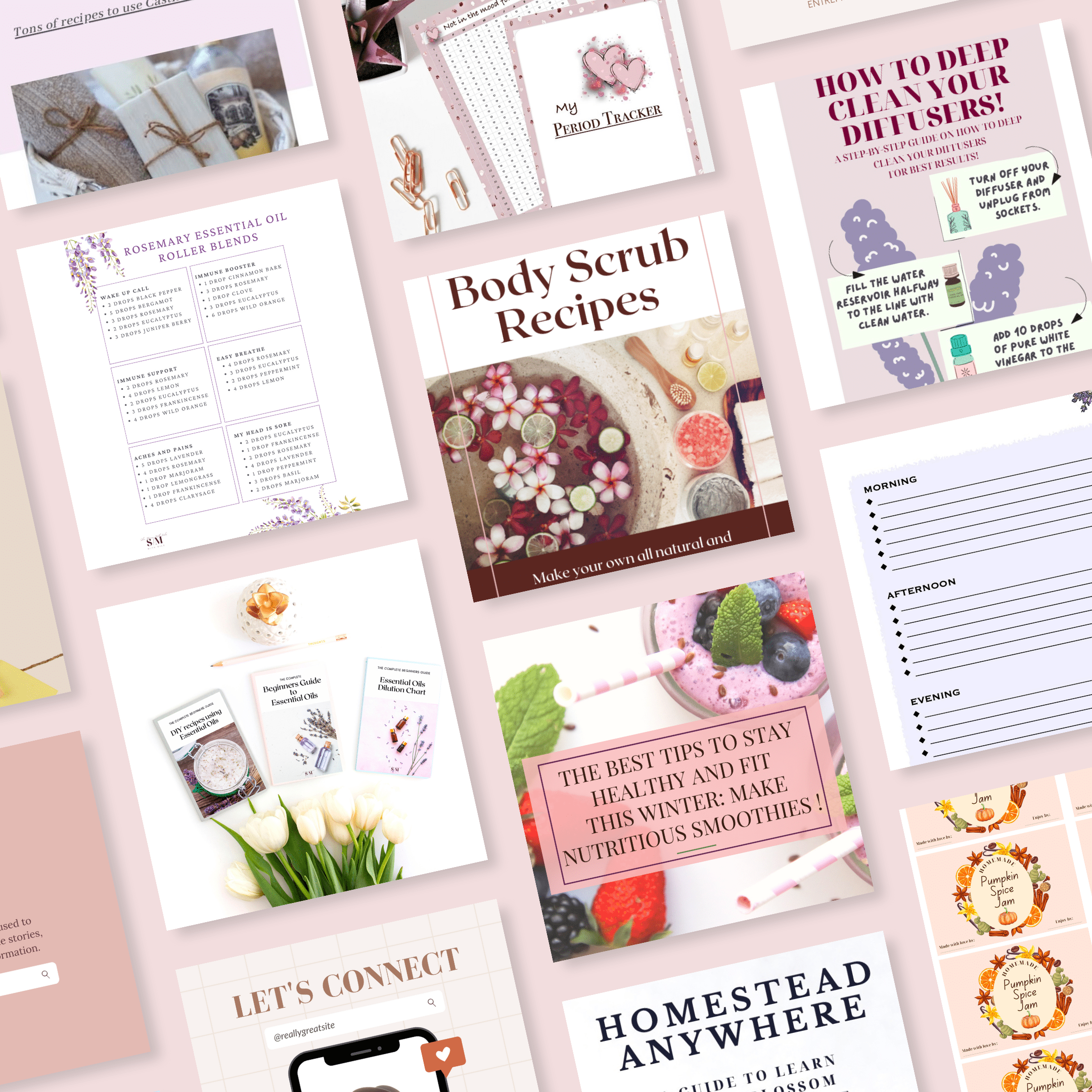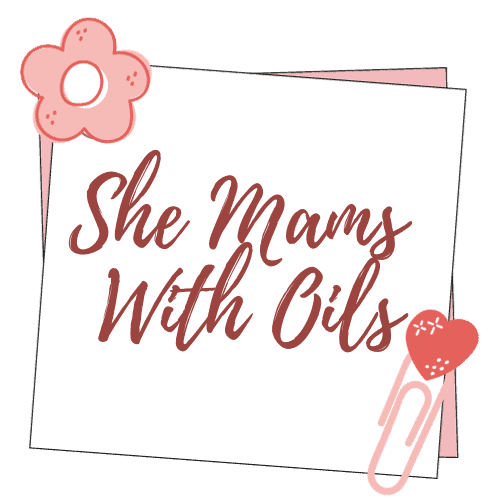THE BEST DIY FACE SERUM FOR ACNE-PRONE SKIN USING ESSENTIAL OILS
The best DIY Face Serum for Acne-Prone Skin using Essential Oils.
Discover how to create the ultimate DIY face serum for acne-prone skin using only 2 active ingredients: a carrier oil and some essential oils!
My step-by-step guide will show you how to harness the power of natural ingredients, combat acne, improve skin’s tone, and achieve clearer skin and a flawless complexion.
This is one of the best face serums you will ever try!
Say goodbye to expensive skincare products and hello to a clear and smooth skin!
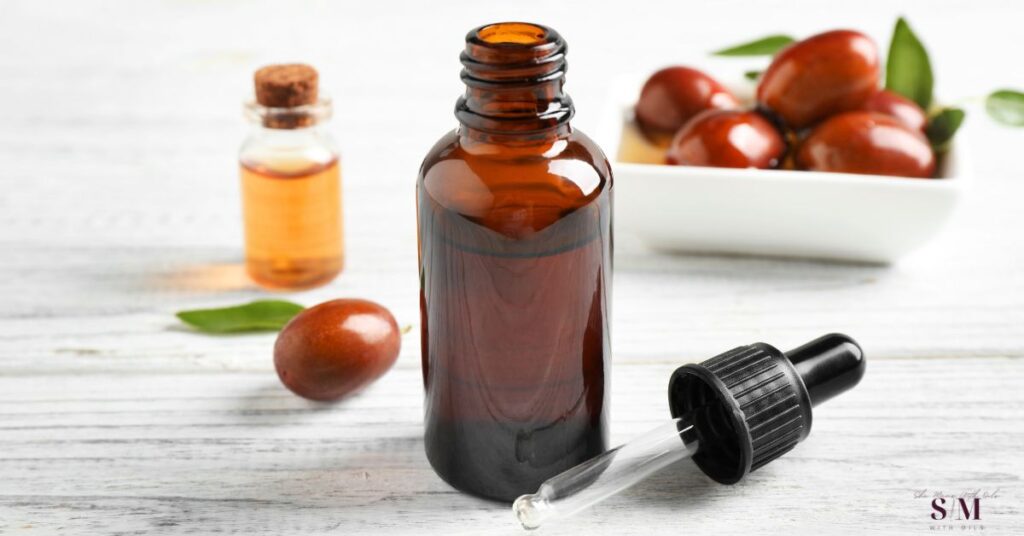
The following post may contain affiliate links, which means I’ll get a small commission if you decide to buy using the links provided. This will add NO EXTRA COST to you but it helps me to keep this blog up and running. Thank you. You can get more info by reading my Disclaimer page.
Hello dear friend, I hope you are having a nice week so far!
The days have brightened up so much in the last couple of weeks, and the sun is finally warm.
We are spending so much time outdoors, and are getting a little tan as a result!
My skin absolutely love this kind of weather and I find that, as long as I wear the appropriate SPF, my face gets that lovely glow and colour that makes me look a little younger!
And who would say no to that?
Sunshine has always worked miracles for my acne prone skin. During my teenage years, summers were normally the time of the year where my acne breakouts and uneven skin tone would finally clear spontaneously.
However, now that I’m older, I need to look after my skin better and more intentionally if I want to avoid future breakouts and maintain a clear skin.
Indeed, adult acne is a real thing!
This is why I came up with this wonderful recipe for the best DIY Face Serum for Acne-Prone Skin using Essential Oils.
This homemade skin care product is one of the best serums you will ever try!
The best DIY Face Serum for Acne-Prone Skin using Essential Oils
In this blog post, I’m going to share with you a comprehensive guide on creating the best DIY face serum to combat the effects of acne, using the power of essential oils.
This facial serum is a great choice for any skin type, whether you have sensitive skin or dry skin. Naturally this recipe works wonders for oily skin types!
If you’re tired of battling acne and searching for a natural solution, you’ve come to the right place!
In this comprehensive guide, I will walk you through a step-by-step process to create a highly effective face serum that only uses 2 key ingredients, and will help you achieve a radiant, blemish-free complexion without breaking the bank.
This is the right serum if you want to move away from hidden ingredients and harsh chemicals, and if you are looking for a more affordable option compared to store bought products!
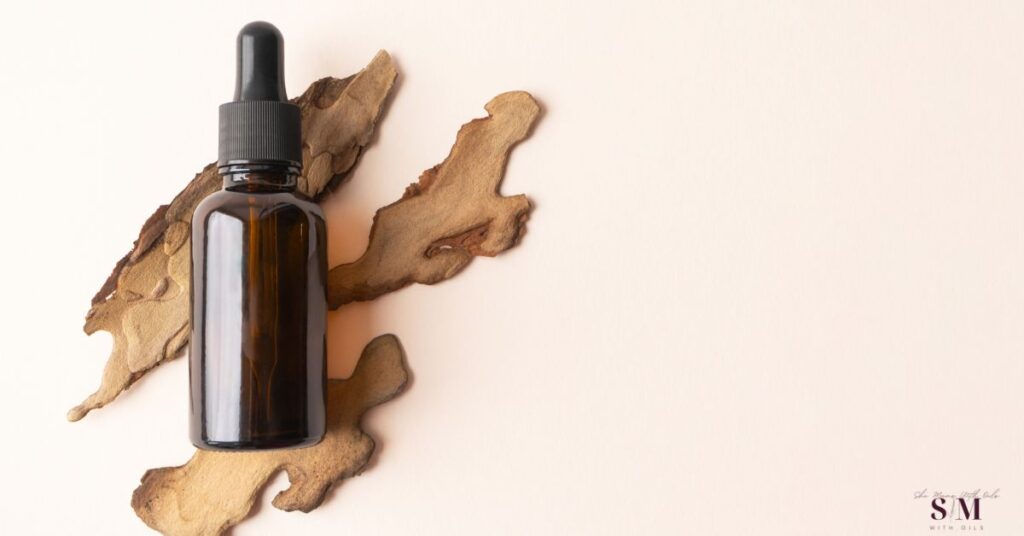
IMPORTANT
The content of this blog post is intended for information purposes only. It is not intended to replace professional medical advice.
I am not a doctor and I’m only sharing my personal experience here.
If you are unwell or sick, always ask your trusted doctor or medical practitioner for advice. Pay particular attention if you are allergic or intolerant to any food and/or medication, if you are pregnant or breast-feeding. Children and elderly people should also seek medical attention quickly if unwell or experiencing any symptom.
Even if you don’t experience any symptom, always contact your trusted health provider if in doubt. If you feel unwell and are worried, it is safer to ask for medical advice from a professional than to wait.
Always keep essential oils out of reach of children.
Never risk it!
IMPORTANT
Always read the label carefully before consuming any medication. Never exceed the recommended dose. Ask for the advice of your pharmacist if in doubt, and if you are already taking other prescriptions, if you are allergic to any ingredient, if you are pregnant or breastfeeding.
Moreover, contact your doctor immediately if your symptoms don’t improve or if you get worse.
Understanding Acne-Prone Skin
Before we dive in into the recipe, let’s first clarify what I mean by “acne-prone skin”.
What is Acne?
Acne is a common skin condition that affects millions of people worldwide.
From this article:”Acne is a common skin condition that happens when hair follicles under the skin become clogged. Sebum—oil that helps keep skin from drying out—and dead skin cells plug the pores, which leads to outbreaks of lesions, commonly called pimples or zits. Most often, the outbreaks occur on the face but can also appear on the back, chest, and shoulders.”.
Characteristics of Acne-Prone Skin
As mentioned above, acne occurs when hair follicles become clogged with oil, dead skin cells, and bacteria. This can lead to various types of skin problems, such as blackheads, whiteheads, pimples, and cysts. People with acne-prone skin often experience oily and shiny skin (due to excess oil production), frequent breakouts, and inflammation.
Acne can be frustrating and have a negative impact on self-esteem.
How do you make homemade face serum with essential oils?
Thankfully, it is very easy and inexpensive to make your own DIY face serum for acne-prone skin.
For this lightweight serum for blemish-prone skin, you only need 2 main ingredients: jojoba oil (or another carrier oil of your choice, such as sweet almond oil, fractionated coconut oil, etc.), and essential oils.
Let’s have a look at what are the best carrier oils and essential oils to use for your needs.
WHAT ARE THE BEST CARRIER OILS FOR ACNE PRONE SKIN?
On the market today there are several options when it comes to purchasing a good carrier oil for your skin.
If you have acne-prone skin, as a general rule, you should stick to those low on the comedogenic scale, as they are less likely to clog your pores and cause breakouts.
I personally only use jojoba oil for my face, but feel free to choose another carrier oil if you prefer.
For example:
- Jojoba Oil: Jojoba oil closely resembles the natural sebum produced by the skin, making it an excellent choice for acne-prone skin. It helps regulate oil production, moisturizes without clogging pores, and has antibacterial properties.
- Grapeseed Oil: Grapeseed oil is lightweight and easily absorbed by the skin. It is rich in linoleic acid, which can help balance sebum production and reduce the risk of clogged pores. Grapeseed oil also has antioxidant and anti-inflammatory properties.
- Rosehip Oil: Rosehip oil is high in vitamins A and C, as well as essential fatty acids. It helps promote skin regeneration, reduce the appearance of acne scars, and has anti-inflammatory properties.
- Evening Primrose Oil: Evening primrose oil is rich in gamma-linolenic acid (GLA), which has anti-inflammatory effects. It can help soothe irritated skin, reduce inflammation associated with acne, and regulate oil production.
- Hemp Seed Oil: Hemp seed oil is lightweight and non-comedogenic, making it suitable for acne-prone skin. It has anti-inflammatory properties and helps balance oil production.
Remember to perform a patch test before using any new oil on your face to check for any adverse reactions. Additionally, it’s always a good idea to consult with a dermatologist for personalised recommendations based on your specific skin condition.
Subscribe to my YouTube Channel!
If you’d rather watch a video, you can watch on my Youtube channel!
Don’t forget to pin the post for later!
What are Essential Oils?
Essential oils are highly concentrated plant extracts derived from leaves, flowers, stems, and other parts of plants. They have been used for centuries in various traditional and alternative medicine practices. Essential oils are known for their aromatic properties and therapeutic benefits.
What are the best essential oils for homemade face serum? What oil is best for acne-prone skin?
Essential oils are powerhouse ingredients!
They can help in soothing your skin, reduce inflammation and minimise scars.
This is why using essential oils in your DIY face serum can help boost its properties and benefits for acne-prone skin.
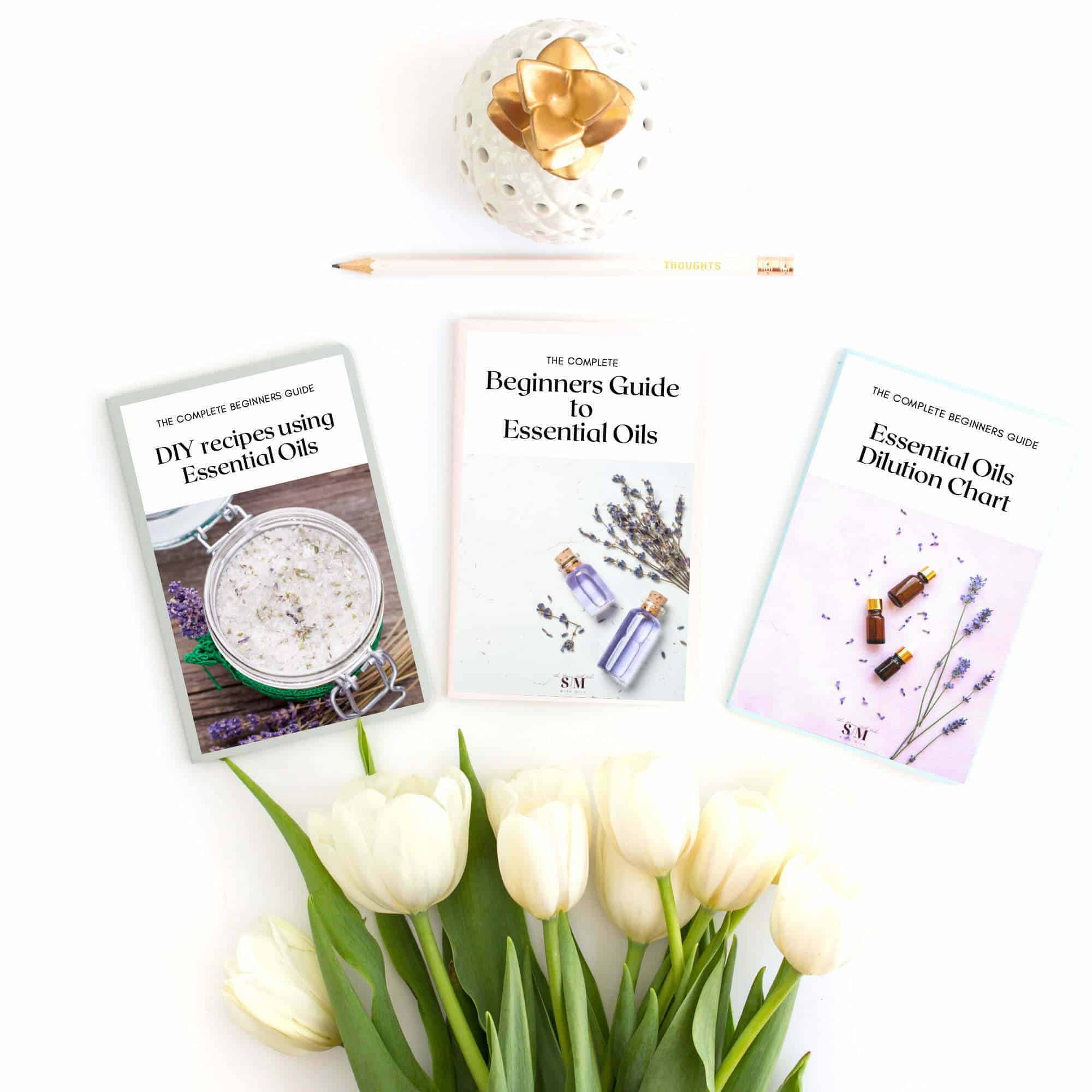
GET THE COMPLETE BEGINNERS GUIDE TO ESSENTIAL OILS!
Are you curious about what Essential Oils are, and what they can do for you and your family?
Did you know that EO have been used for centuries to help support our health and wellbeing?
If you want to learn more, I have created the perfect complete guide to beginners EO users. You can get it on my Etsy shop at a special introductory price.
important
Only use 100% unadulterated and pure essential oils, from a reputable company.
Never use essential oils topically unless properly diluted, and only use them after a patch test.
Pay particular attention if you are pregnant, breast-feeding, or on older people and young children.
Some people might develop skin irritations or adverse reactions.
Never ingest essential oils without reading the label first, as not all oils can be consumed internally.
Always talk to your trusted medical practitioner and/or certified aromatherapist before using essential oils, especially if you suffer from any allergy, intolerance, are ill or are already taking any medication.
I’ll show you what oils I add to my recipe. However, you can choose among any of the following ones:
- Lavender Oil: Lavender oil has antibacterial and anti-inflammatory properties. It can help calm and soothe the skin, reduce redness, and promote healing. Lavender oil also has a relaxing aroma, which can be beneficial for reducing stress-related acne.
- Tea Tree Oil: Tea tree oil (or Melaleuca) is well-known for its antimicrobial and anti-inflammatory properties. It can help reduce acne-causing bacteria, soothe inflammation, and promote healing of acne lesions.
- Rosemary Oil: Rosemary oil has antimicrobial properties and can help reduce inflammation. It is often used in skincare for its ability to support circulation and promote a healthy complexion. However, Rosemary is a very strong oil, and I honestly would not recommend it for use on your face.
- Clary Sage Oil: Clary sage oil has anti-inflammatory and antiseptic properties. It can help regulate sebum production, reduce inflammation, and prevent clogged pores.
- Bergamot Oil: Bergamot oil has antiseptic and antibacterial properties. It can help cleanse the skin, reduce excess oil, and promote a balanced complexion. However, bergamot oil is photosensitive and should not be applied to the skin before sun exposure (like all citrus oils).
- Copaiba Oil: Copaiba oil is very well known for its soothing, anti-inflammatory and calming properties. I always add it to my homemade skin care products.
- Frankincense Oil: Frankincense oil has anti-inflammatory and soothing properties. It can help reduce redness, calm irritated skin, and promote skin regeneration.
The above list is by no means complete. Feel free to use a different oil if you prefer. Always make sure to check if it’s suitable for topical application and dilute properly.
ESSENTIAL OILS DILUTION CHART
YOU CAN GET MY FREE PRINTABLE with a safe dilution chart for essential oils here:
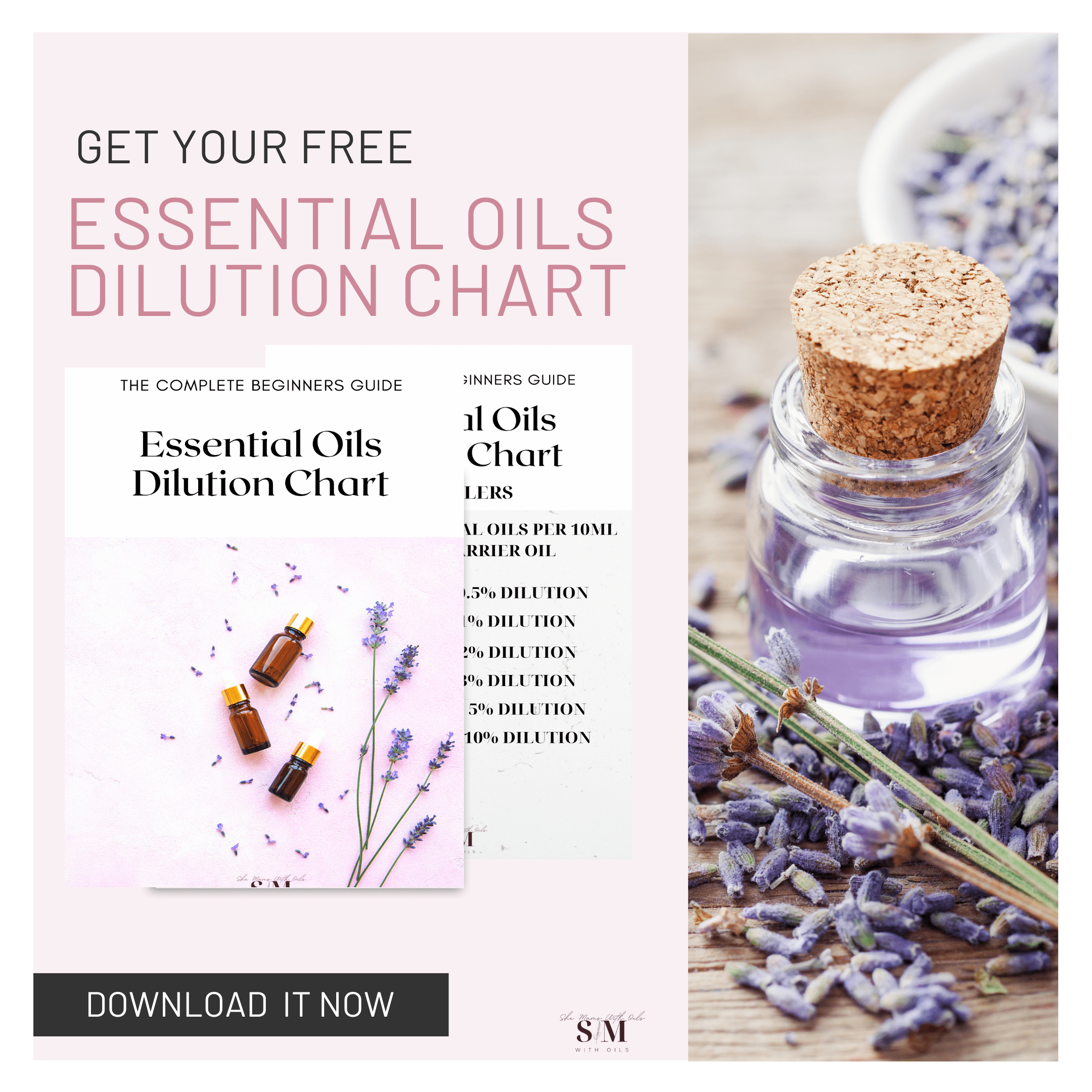
FREE DILUTION CHART FOR BEGINNERS ESSENTIAL OILS USERS.
IMPORTANT
Always follow the advice of your trusted health practitioner before using any product around your home.
Although the natural ingredients used in the recipes below are generally safe, always consult with your doctor before using any product. Pay particular attention if you suffer from any condition, allergy or if you are pregnant or breastfeeding.
Seek immediate advice and help from your trusted medical care provider if you are concerned about your health or that of your family members or pets.
For example
While essential oils and natural ingredients are generally safe for pets, some animals might be sensitive to some ingredients, or might develop an allergic reaction. Immediately stop any treatment if you notice any reaction, such as a skin irritation on your dog. Seek immediate help from your local vet if you are concerned about your pet’s health at any stage.
The same advice applies to you and the rest of your family.
How do you make natural serum at home?
Let’s make the best DIY face serum for acne-prone skin following my step-by-step guide.
Step 1: Gather Your Ingredients
To create the best DIY face serum for acne-prone skin, you will need the following:
- a 30ml glass bottle with a dropper top;
- Jojoba oil (or your favourite carrier oil);
- 20 drops in total of essential oils of choice.
I normally add 5 drops each of Tea Tree oil, Lavender, Frankincense, and Copaiba.
Step 2: Prepare Your Workstation
Before you start, ensure you have a clean workspace. Maintaining cleanliness is crucial to prevent any contamination during the preparation process.
Wash your hands well before starting, and only use a clean glass jar!
Step 3: Measure and Mix the Ingredients
- Firstly, carefully place the total drops of essential oils in the glass bottle.
- Gently and slowly (to avoid spilling your precious oils), top up with your carrier oil of choice.
- Close the bottle with its cap.
- Gently shake the bottle to mix all ingredients.
- Voila! Your DIY beauty serum is ready to use!
Step 4: How to use the serum
- Start by washing your face using a gentle face wash.
- Make sure to remove all make up and impurities.
- Follow up with a toner of choice.
- Grab your DIY beauty serum and place 1 drop only on your forehead and one drop on each of your cheeks.
- Gently massage the serum all over your face, making sure to avoid your eyes and mouth.
- Follow up with your preferred moisturiser (this is totally optional).
Step 5: Storage
Store your DIY face serum in a cool, dark place (such as a drawer or a cupboard), away from direct sunlight and heat.
Discard after 6 months max.
HOW OFTEN SHOULD YOU USE DIY FACE SERUM?
I generally use this DIY beauty serum in the morning, as part of my skin care routine.
In the evening, on the other hand, I use my homemade night cream with aloe vera gel.
Are DIY beauty serums effective?
DIY beauty serums can be very effective if you make them properly, using the right ingredients and concentrations.
Indeed, it’s important to note that creating your own skincare products requires a little research, to make sure you are using the best ingredients for your specific needs.
Here are some considerations regarding DIY serums:
- Ingredients: Understanding the properties and benefits of various ingredients is crucial in order to get the best results. This means that you might try a specific carrier oil or essential oil, only to later decide that you actually do not like it, and would rather use an alternative one.
- Hygiene and Storage: Proper hygiene and storage are important to prevent contamination and microbial growth in DIY serums. Using clean utensils and containers, can help prolong the shelf life of a DIY product.
- Proper dilution: DIY serums should be properly diluted to ensure safety and efficacy. Make sure not to use too many drops of essential oils, as they are very powerful!
- Individual needs and preferences: Every person’s skin is unique, and what works for one may not work for another. DIY serums may not provide the same consistent results as commercially formulated products that undergo rigorous testing and quality control. Be patient and consistent with using this product, and be ready to swap ingredients if needed.
- Safety: Some ingredients, even the natural ones, can cause skin irritation or allergic reactions. It’s important to research and understand potential side effects and contraindications of the ingredients you plan to use. Patch testing is also recommended before applying any DIY serum to your face.
- Professional Advice: If you’re uncertain about formulating your own skincare products, it’s advisable to seek guidance from a board-certified dermatologist or skincare professional. They can provide personalised recommendations based on your skin type, concerns, and advise on the most suitable products for you.
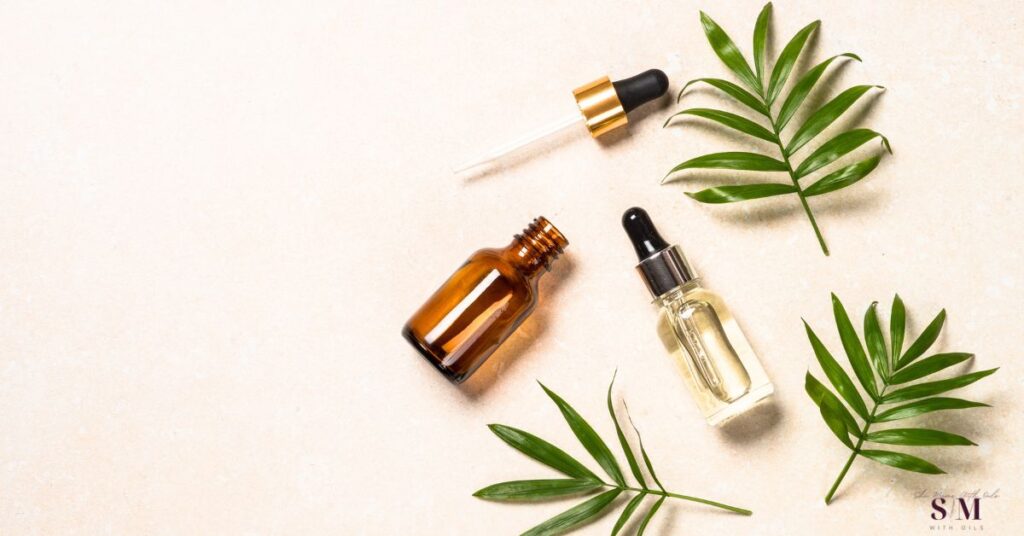
How long do DIY serums last?
This recipe for a DIY beauty serum does not use any water. Therefore, if you store it properly, it will last for up to 6 months.
For best results, and a longer shelf life, make sure to use a dark glass bottle and store it in a cupboard or drawer.
Should I keep all serums in fridge?
No, this DIY serum will keep very well even if you do not place it in the fridge.
However, if you prefer to experience a cooling sensation on your skin when you apply it, then of course feel free to keep it in the fridge. This might be particularly beneficial in the summer months.
Never place the serum bottle on a windowsill, or near a radiator!
Additional Tips for Acne-Prone Skin Care
In addition to using the DIY face serum, incorporating these tips into your skincare routine can further help in managing acne-prone skin:
- Cleanse your face twice daily using a gentle cleanser formulated for acne-prone skin.
- Avoid harsh scrubbing or over-exfoliating, as it can irritate the skin and worsen acne.
- Use non-comedogenic and oil-free moisturisers to prevent clogged pores.
- Protect your skin from harmful UV rays by wearing sunscreen daily.
- Maintain a healthy lifestyle by consuming a balanced diet, staying hydrated, and managing stress levels.
- Check for possible food intolerances as sometimes acne is only the result of consuming the wrong foods. I personally find that my body does not agree with dairy products and excessive consumption of gluten containing items (such as bread and pasta and cakes). If I do eat any of those foods, I quickly get a nasty breakout on my face!
- Similarly, have your trusted doctor run some test on your hormone levels if you are worried that your acne is related to an hormonal imbalance.
The best DIY Face Serum for Acne-Prone Skin using Essential Oils: Conclusions
Creating your own DIY face serum for acne-prone skin using essential oils is a natural and effective way to combat acne, reduce inflammation, and promote healthy skin. By understanding the characteristics of acne-prone skin and harnessing the power of essential oils, you can take control of your skincare routine and achieve a clearer, blemish-free complexion.
Remember, consistency is key. Incorporate the DIY face serum into your daily skincare routine, and the results will come.
As always, feel free to leave a comment in the section below if you like. Let me know if you try this recipe and how it works for you. I’d love to hear from you.
Till next time, Dee.
IMPORTANT
When using Essential Oils, make sure to use only CPTG Certified, Pure, Tested Grade ones, like Doterra Essential Oils. The content of this blog post and any information provided here has not been evaluated by the FDA (Food and Drug Administration), any government entity or medical practitioner. It is NOT intended to diagnose, treat, cure or prevent any disease, illness or condition. It is NOT intended to be a substitute for medical counselling. If you are pregnant, breastfeeding, or suffering from any medical condition or illness or injury, you SHOULD consult a qualified healthcare professional before using any product.
Hi, I’m Dee!
Mom of three; printables creator, natural solutions, simple living and homemade food enthusiast; “Outlander” fanatic.
When I’m not busy writing and designing, you can always find me covered in a cloud of flour in the kitchen, playing and crafting with my children, or making up some blends with my Essential Oils. Also I’m practically obsessed with Crystals and reading during my spare time.
Come along on our crazy journey as a family living in the countryside of Ireland!
